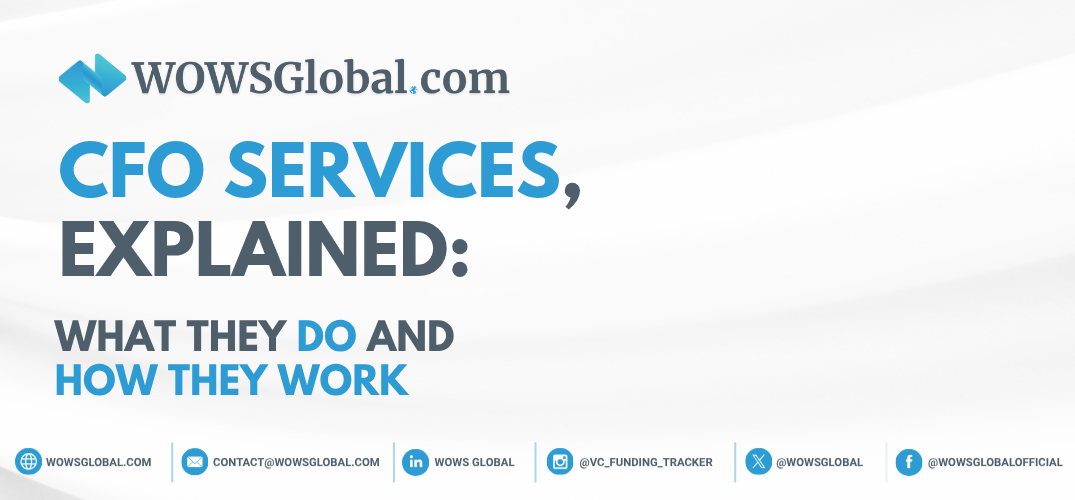Why Your Accounting Director Might Not Be Enough: The Surging Demand for Fractional CFOs in Startups
Startups Fractional CFO Fundraising 5 minutes

Why Your Accounting Director Might Not Be Enough: The Surging Demand for Fractional CFOs in Startups
Imagine this scenario: A startup is scaling rapidly, armed with a strong product and a growing customer base. They have an Accounting Director who ensures the books are balanced and every financial transaction is accounted for. But as they gear up for their next funding round, they realize that accurate numbers alone won't cut it—they need strategic financial insight to navigate the complex landscape ahead. This is where the fractional CFO comes in.
In today’s fast-paced startup environment, over 75% of pre-Series B startups are turning to fractional CFOs. Why? Because while an Accounting Director keeps the financials in order, a CFO provides the strategic direction necessary to steer the company through growth, fundraising, and potential challenges. These roles, though distinct, are highly complementary.
The Hidden Risk: Bad Terms That Haunt Future Rounds
Without a fractional CFO during the early stages, founders might inadvertently agree to unfavorable terms with investors—terms that can set a dangerous precedent for future financing rounds. A seemingly minor concession today could lead to restrictive covenants, diluted equity, or even a loss of control in the future. A fractional CFO brings the experience and foresight needed to navigate these negotiations, ensuring that founders protect their long-term interests while securing the necessary capital.
What Does a Fractional CFO Do?
Fractional CFOs offer the expertise of a full-time CFO on a part-time basis, making them an ideal solution for startups. Here’s how they contribute:
-
Strategic Financial Planning: Beyond just crunching numbers, fractional CFOs craft financial models and guide long-term strategy. They ensure that the startup’s vision aligns with its financial health and future goals.
-
Fundraising and Investor Relations: Fractional CFOs don’t just track cash flow—they create compelling financial narratives that resonate with investors. They guide the company through successful funding rounds, ensuring that terms support sustainable growth.
-
Corporate Structuring: As startups grow, their operational complexity increases. Fractional CFOs help structure the business in a way that supports scalable operations, aligning with both current needs and future aspirations.
-
Cost Management and Profitability: They don’t just report costs—they analyze them. By identifying opportunities to optimize spending, fractional CFOs extend the company’s runway and enhance profitability.
-
Scalability: Fractional CFOs design processes that not only support current growth but also anticipate future challenges. This ensures the company can handle increased operational demands as it scales.
Why You Need a Fractional CFO
Even with an excellent Accounting Director, the strategic insight of a fractional CFO can mean the difference between steady growth and exponential success. By leveraging their experience, startups can navigate growth with agility and confidence, optimizing their chances for long-term success.
So, how are you structuring your financial leadership?
If you haven’t considered a fractional CFO yet, it might be time to explore how this role can add value to your startup.
Related Posts
-

Fundraising 409A Valuation Cap Table Management Investor 3 Minutes
WTF Is 409A and Why Should I Care?
Learn what a 409A valuation is, why it matters for employee stock options and how it impacts founders, investors, taxes and diligence, plus how WOWS Global can help. -

Early Startups Fundraising Due Diligence Data Room
2026 Fundraising: What Changed?
Fundraising in 2026 isn’t about moving faster—it’s about showing up prepared. Learn how to build an investor-ready system (modeling, governance, data room, and investor fit) so diligence doesn’t drag and your strongest conversations go the distance. -

Fractional CFO Documentation Guide Income 4 Minutes
Year-End Finance Reset: Fractional CFO Tips
Turn tax from cost to catalyst worldwide. In 4 minutes, see how fractional CFOs time income, harness incentives, optimize pay and distributions, manage VAT/GST and treaties, and close the year clean with a CFO-style checklist. -

CFO Fractional CFO Cashflow Startup Finance 3 Minutes
CFO Services, Explained: What They Do and How They Work
Numbers should drive choices, not confusion. This quick read breaks down CFO services in simple terms, cash, KPIs, forecasting, and investor-ready reporting, plus a clear next step to talk with WOWS. -

CFO Fractional CFO Southeast Asia SEA Cashflow 4 Minutes
Why You Should Not Hire a Fractional CFO
Fractional CFOs can transform a business, but only if founders are engaged, open to challenge, and aiming for scale. This piece breaks down when not to hire one, and outlines how to partner effectively when you do, from strategic involvement and driver-based models to cash discipline and investor-ready reporting. -

VC SEA Startups Southeast Asia Early Stage 5 Minutes
Ansible Ventures: Backing Vietnam’s Next Generation of Builders
Ansible Ventures is a Vietnam-first, early-stage VC backing software-first founders at pre-seed to pre-Series A. See their thesis, notable bets, and how WOWS can connect you via warm, qualified introductions.
